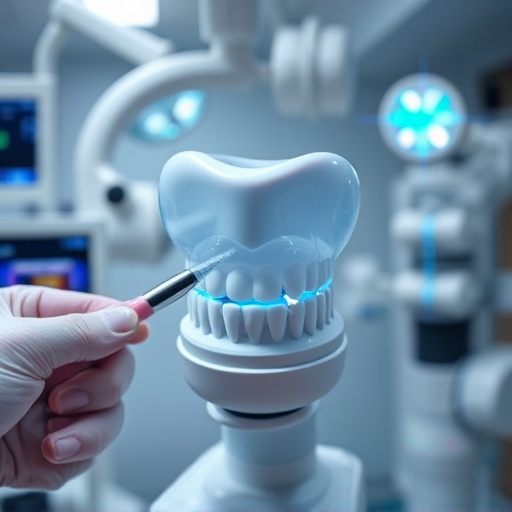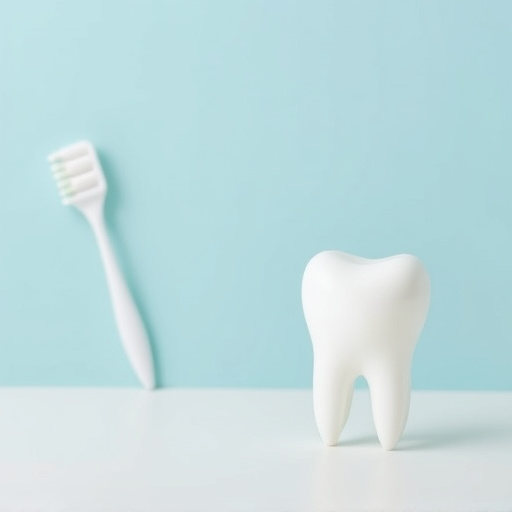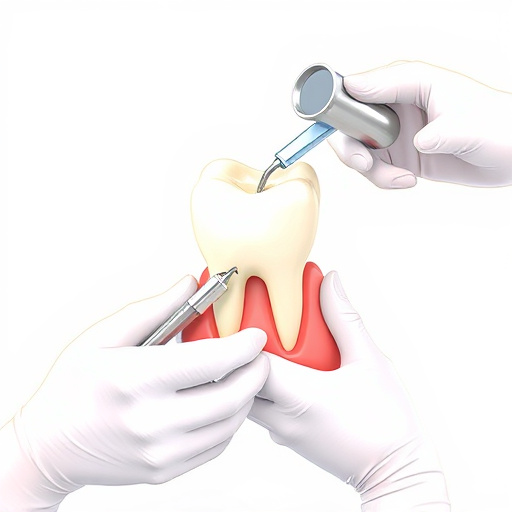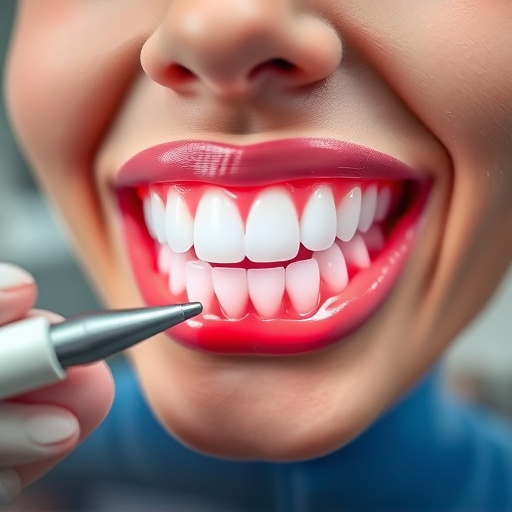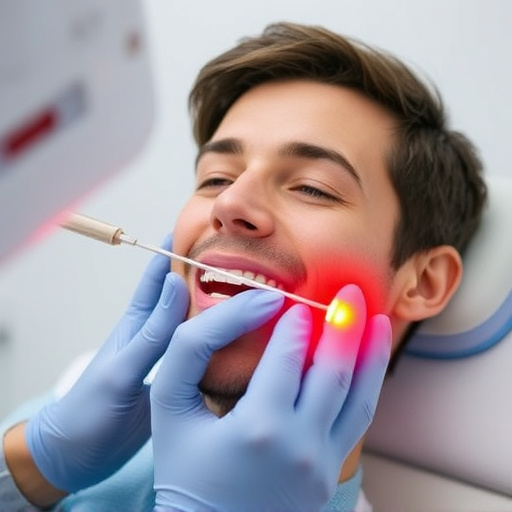Aggressive periodontitis, a severe gum disease marked by rapid bone loss, deep pockets, and potential tooth mobility, requires proactive intervention. Antibiotic therapy, combined with regular check-ups and proper oral hygiene, is crucial for managing inflammation, slowing the disease's progression, and preserving oral health. This treatment targets severe infections, modulates the immune response, and creates an environment conducive to healing. A strategic approach involving follow-up appointments, patient education, and compliance is essential for effective management, with dentists guiding patients on oral hygiene practices and considering additional procedures as needed.
Aggressive periodontitis is a severe gum disease characterized by rapid bone loss and deep periodontal pockets. If left untreated, it can lead to tooth loss. Antibiotic therapy treatment has emerged as a game-changer in managing this aggressive form of gum disease. This comprehensive guide delves into understanding the condition’s symptoms and diagnosis, exploring the role of antibiotic therapy in combating severe inflammation, and providing implementation and follow-up strategies for effective periodontal care.
- Understanding Aggressive Periodontitis: Symptoms and Diagnosis
- The Role of Antibiotic Therapy in Treating Severe Inflammation
- Implementation and Follow-up: Ensuring Effective Periodontal Care
Understanding Aggressive Periodontitis: Symptoms and Diagnosis

Aggressive Periodontitis, a severe form of gum disease, is characterized by rapid bone loss and deep periodontal pockets, often leading to tooth mobility and eventual loss if left untreated. Unlike milder forms of periodontitis, it can progress quickly, affecting multiple teeth simultaneously. Symptoms may include bleeding gums, bad breath, swelling, and pain in the gums and jaw, as well as loose or shifting teeth.
Diagnosis involves a comprehensive dental examination, including measuring periodontal pockets, assessing gum tissue health, and taking X-rays to determine bone loss. A general dentistry practice often identifies aggressive periodontitis through regular check-ups and may recommend antibiotic therapy treatment to manage inflammation and slow disease progression. This proactive approach, combined with proper oral hygiene practices and comprehensive dental care, is crucial in preserving oral health and reducing the risk of tooth loss.
The Role of Antibiotic Therapy in Treating Severe Inflammation

Antibiotic therapy plays a pivotal role in managing aggressive periodontitis by targeting severe inflammation and bacterial infections. When left untreated, this periodontal disease can lead to significant destruction of gum tissue and bone structures supporting teeth, often resulting in tooth loss. Antibiotic treatment introduces medications directly into the affected areas to combat pathogens and reduce inflammation. This targeted approach helps create an optimal environment for healing and regeneration.
By inhibiting the growth of harmful bacteria, antibiotic therapy reduces the production of toxins that contribute to periodontal damage. Additionally, these therapies can modulate the immune response, minimizing excessive inflammation that impairs natural healing mechanisms. The strategic use of antibiotics is particularly crucial when other treatments like dental bonding, dental crowns, or dental fillings alone are insufficient to address the depth and extent of the disease.
Implementation and Follow-up: Ensuring Effective Periodontal Care
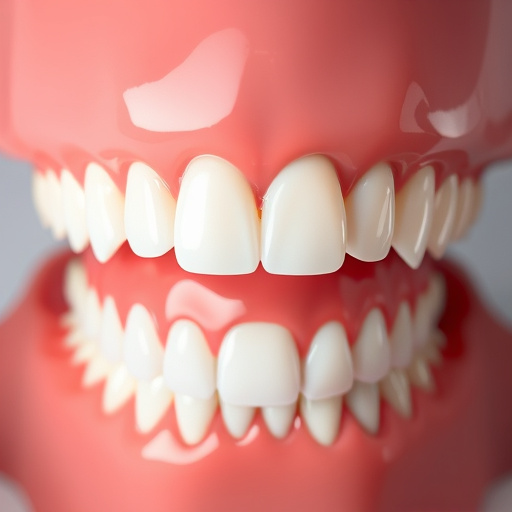
Implementing antibiotic therapy treatment for aggressive periodontitis requires a meticulous approach to ensure optimal results. After initiating the prescribed medication, regular follow-up appointments are crucial. During these visits, dental professionals can monitor patients’ progress, assess healing, and make necessary adjustments to the treatment plan. This may involve adjusting antibiotic regimens or exploring complementary procedures like wisdom tooth removal or restorative dentistry to address any underlying issues contributing to the periodontal disease.
Effective periodontal care also encompasses patient education and compliance. Dentists play a vital role in guiding patients on proper oral hygiene practices, including techniques for flossing and brushing. Additionally, they may recommend dental bonding or other cosmetic dentistry procedures to restore damaged tooth structures and enhance overall oral health, ensuring long-term periodontal stability.
Antibiotic therapy treatment proves to be a game-changer in managing aggressive periodontitis, targeting severe inflammation effectively. By understanding the condition’s unique symptoms and diagnosis, dental professionals can implement tailored care plans. Through careful administration and follow-up, this approach ensures improved periodontal health, highlighting the significance of antibiotic therapy as a powerful tool in oral care.








